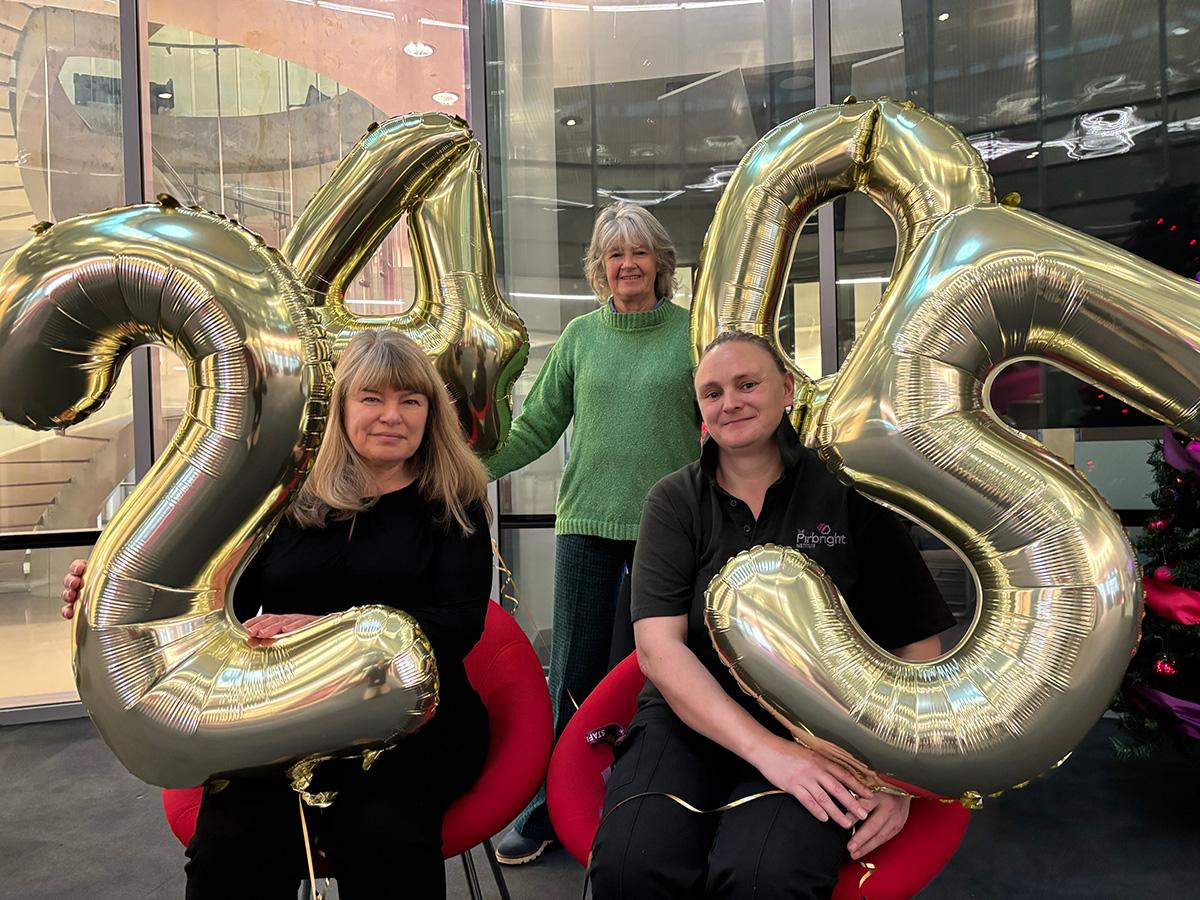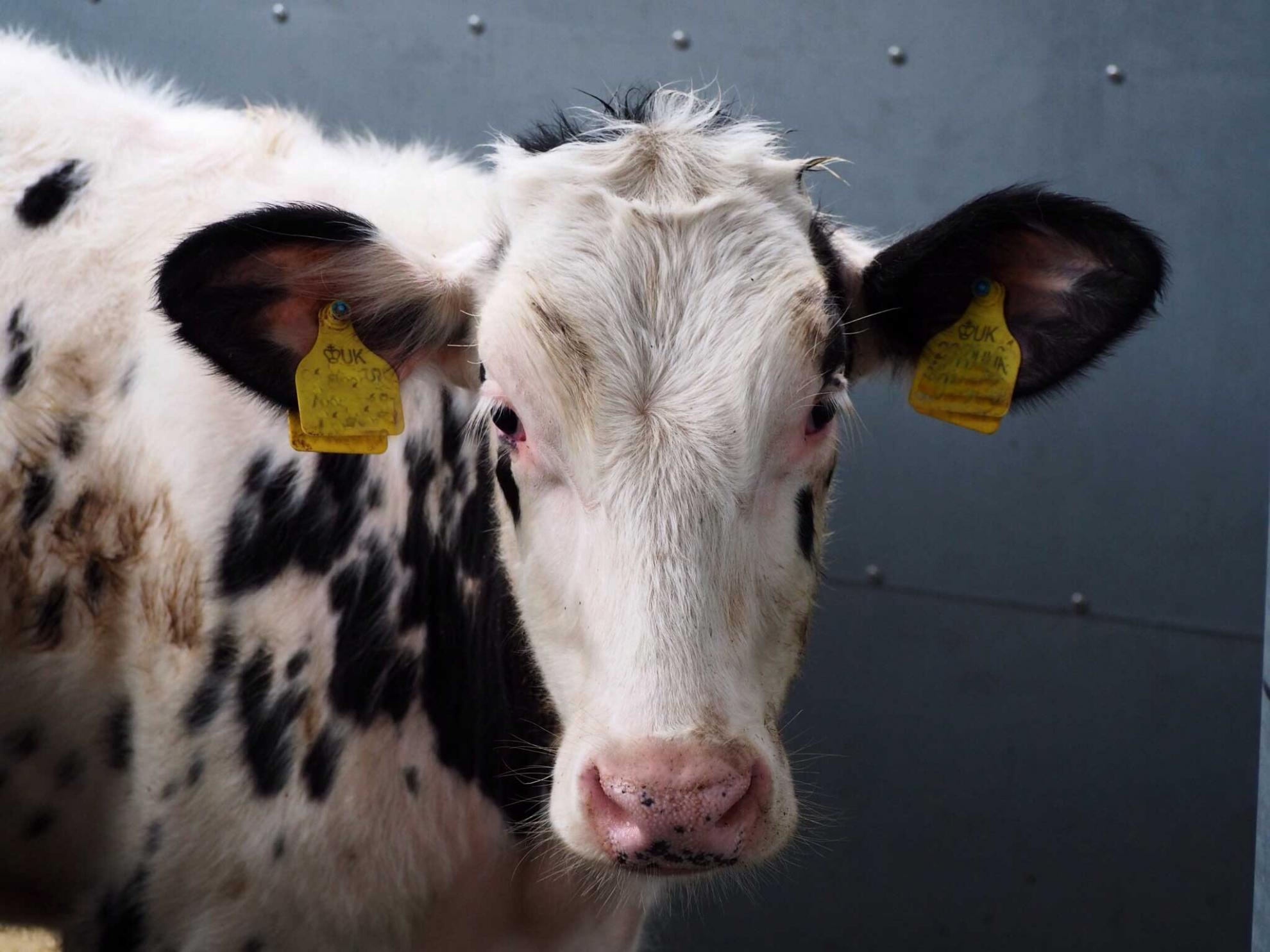Three dedicated colleagues who have worked at The Pirbright Institute for a combined total of 90 years are celebrating Long Service Awards.
Group leader Dr Linda Dixon has served 40 years, whilst researcher Dr Alison Burman and animal services specialist Louise Stevenson are both celebrating 25 years apiece.
Dr Dixon moved from a postdoctoral position in Switzerland to Pirbright, then named the Animal Virus Research Institute. She leads the African Swine Fever Virus (ASFV) group and is amongst the most highly cited researchers in the field, with a career spanning molecular and cell biology, virology and vaccinology.
Linda’s work is focused on the functional genomics of ASFV aimed at understanding mechanisms of immune evasion and pathogenesis, whilst her group has also focused on research underpinning the development of effective vaccines.
“I was excited to have the opportunity to research African swine fever virus - a fascinating virus, unique and highly complex, with many opportunities to carry out high impact research.
“The multidisciplinary approach and open exchange of knowledge at Pirbright made it easy to establish very effective internal collaborations. Pirbright’s extensive international and UK links helped establish external collaborations,” said Dr Dixon.
“I have been lucky to have worked with very talented, enthusiastic, and hardworking researchers, complemented by the commitment of technical and admin support staff with a helpful, can-do attitude. The current Pirbright is very different in many respects to when I first joined. However, the camaraderie and sense of working to achieve shared important goals has remained very strong.”
Dr Alison Burman’s first project was on foot-and-mouth disease virus-like particle (VLP) vaccines that mimic naturally occurring viruses. The concept, rekindled in the mid-noughties, has sustained Dr Burman’s research, alongside work on specificity of cell-binding integrins and expression and its use in FMDV diagnostics.
“Pirbright was a lot smaller when I first arrived; everybody knew one another, and scientists far outnumbered non-scientific staff! Although it’s grown in recent years (the buildings certainly have), it still retains that feeling of camaraderie,” said Dr Burman. “I’ve always had great bosses who let you get on with the work, and I have always been happier at the coalface!”
Animal services specialist Louise Stevenson started at the Compton site at the age of 16.
“I have grown up with the institute. I enjoy working with the animals and the variety of work with the different studies,” said Louise. “When Compton closed, it felt strange and moving over to the Pirbright site took some getting used to. I now work with cattle, sheep, goats, mice and poultry and have learnt a lot over the years. I still enjoy my role and hope to be here for many more years (just 15 to go!).”
Institute Director, Professor Bryan Charleston MRCVS FRS, who himself celebrates 30 years at the Institute this year, commended all three.
“It is a real pleasure to congratulate Linda, Alison and Louise and acknowledge their long service at Pirbright. The Institute is here to carry out long term research to address major knowledge gaps. We have impressive and unique facilities, but it is people who deliver that new knowledge either by scientific research or by providing essential enabling capabilities.”



